What it does ...
The Hosts file contains the mappings of IP addresses to host names. This file is loaded into memory (cache) at startup, then Windows checks the Hosts file before it queries any DNS servers, which enables it to override addresses in the DNS. This prevents access to the listed sites by redirecting any connection attempts back to the local (your) machine. Another feature of the HOSTS file is its ability to block other applications from connecting to the Internet, providing the entry exists.
You can use a HOSTS file to block ads, banners, 3rd party Cookies, 3rd party page counters, web bugs, and even most hijackers. This is accomplished by blocking the connection(s) that supplies these little gems.
Example - the following entry 127.0.0.1 ad.doubleclick.net blocks all files supplied by that DoubleClick Server to the web page you are viewing. This also prevents the server from tracking your movements. Why? ... because in certain cases "Ad Servers" like Doubleclick (and many others) will try to open a separate connection on the webpage you are viewing.
For XP SP2 users you should see a Security Center prompt about allowing this connection. [screenshot]
Simply click No and continue. Yes the prompts can be annoying but at least you'll know, however you should not see these prompts if these entries are included in the HOSTS file.
Note: this prompt only occurs if (example) *.doubleclick.net is included in the "Restricted Zone".




